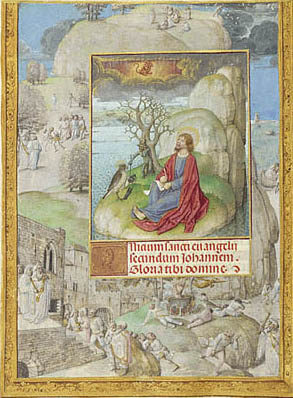By: Tera Ertz
“In the beginning was the Word, and the Word was with God, and the Word was God. He was in the beginning with God. All things were made through him, and without him was not any thing made that was made. In him was life,and the life was the light of men. The light shines in the darkness, and the darkness has not overcome it.” John 1:1-5 ESV
“For he makes his sun rise on the evil and on the good, and sends rain on the just and on the unjust.” Matthew 5:45b
The first of these verses has always translated to me that the Bible is in fact Christ in written form. He, and therefore Scripture, was there from the beginning, and it will be there until the end of the earth. When I read the statement that all things were made through Him and that in Him was life and the light of men, it triggered a new understanding of the purpose of Scripture in the world. When that first thought combined with the verse from Matthew, the understanding came into full blossom.
As Christians, we view the Scripture as the Word of God, holy, sacrosanct, spiritual. Because we live in a nation that prizes the freedom to practice faith as God leads each of us individually, we have fallen into the trap of seeing and communicating the Bible as nothing more than that: Our Holy Book, our Word of God, our spiritual guide. We are currently reading Beth Moore’s Jesus the One and Only for our women’s group study. This conundrum reminded me of a line early in that study. Jesus demonstrated wisdom, which is what we seek in the Bible. However, He demonstrated wisdom that was both deeply spiritual, and deeply practical in daily life. The Bible is the Word, also deeply spiritual and deeply practical. He made it not just for those who believe in God, or those who are righteous, much as the sun and the rain, it applies to all people in all times, whether they believe or not. We, as Christians, have stopped speaking that truth, and often I think we may not actually realize it.
In studying political science and then theology, I had the pleasure of studying psychology, sociology, and history as part of the core classes required for most degree programs. The more I studied these subjects the more I came to realize something was missing in the modern explanations for behaviors. The theories conflicted, the understanding the various schools of thought produced were incomplete. Some said class was the driving factor in societal tensions, some gender. Some said genetics were the answer to aberrant behavior; some said environment was the key. History demonstrated the rise and fall of civilizations, noting certain traits within each culture that preceded its downfall. None offered a comprehensive analysis of what traits in society or individuals created desirable outcomes. None explained what traits created the disruptions of civil war, revolution, or successful enemy invasion.
However, one area of study did explain. It offered a guide to behavior that led to personal success and societal stability and harmony. It offered side-by-side comparisons over the course of multiple cultures demonstrating what the effects were of following the personal, societal and governmental ideals and of failing to follow them. It was rife with global analysis of human behavior, both the base human instincts and the impact of environment on the individual’s behavior. It was full of societal interactions that addressed class, gender, age, and social standing. It highlighted the societal and governmental failures that led to war, revolution, famine, and invasion, as well as the means by which those misfortunes could be avoided or survived. In short, it was the most comprehensive text on psychology, sociology and in large part ancient history ever written.
There’s a reason for that, it was The Word, given to mankind to help us understand the God who made the universe. It’s lessons are to bring light to the darkness of the whole world, the evil and the good, the just and the unjust, the believer and the unbeliever. It is a universal Word, with universal truths, because God is a universal God. We as Christians need to reclaim the Bible as The Truth, not just our truth. We need to understand its lessons as they apply to the interactions of mankind. In addition, we need to gracefully reject the idea that the truth is not relevant in a free society because it can be found in the Bible. Be blessed and be a blessing.

Reblogged this on Contagious Transformation.